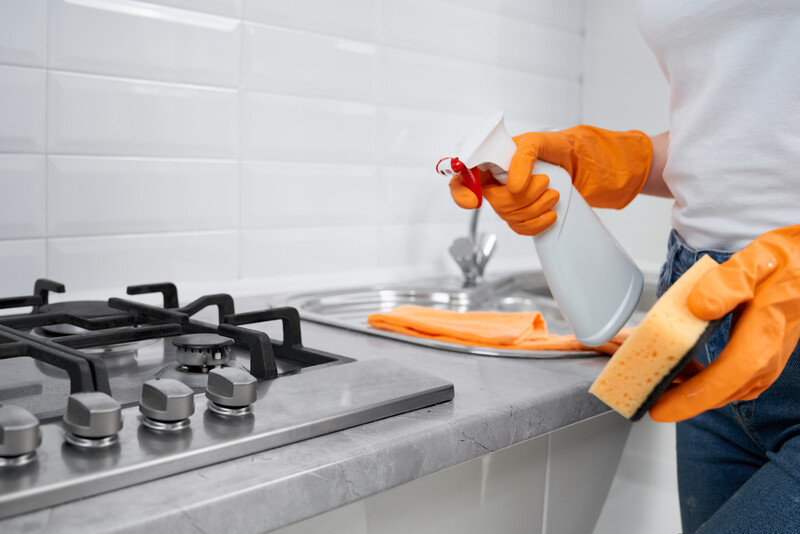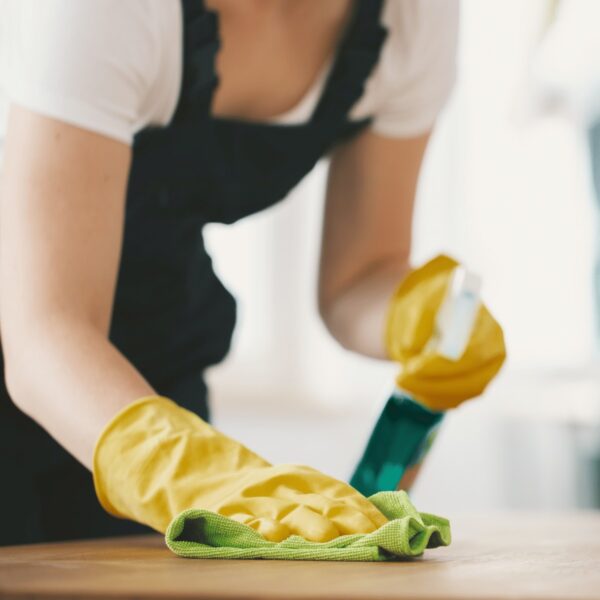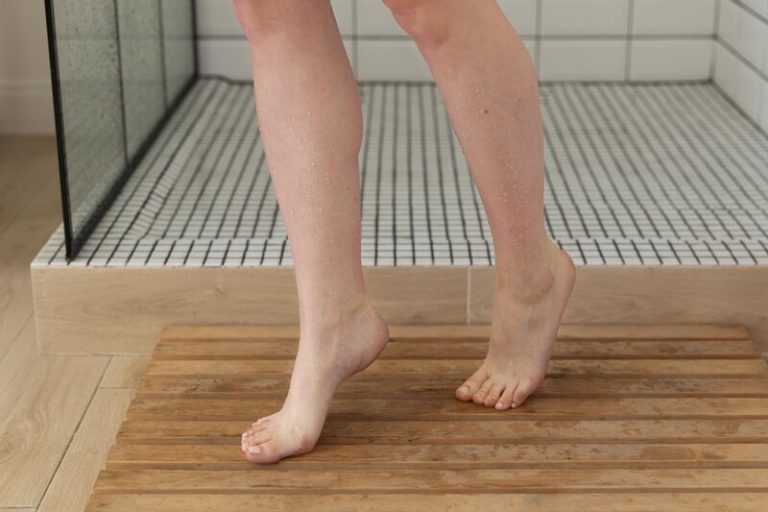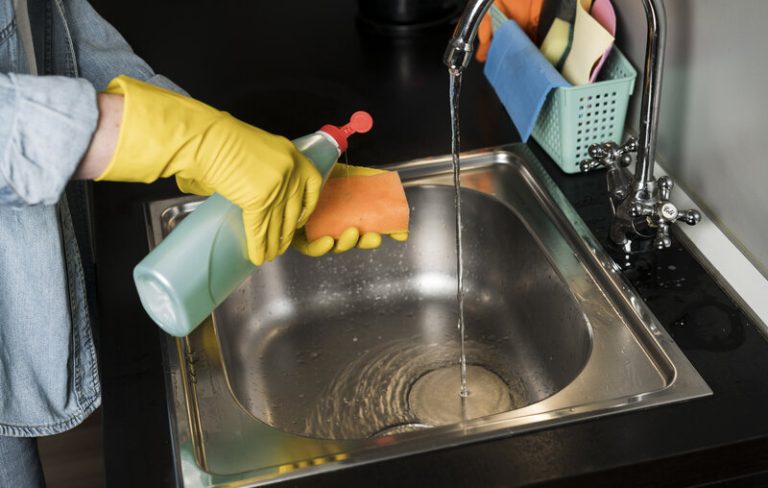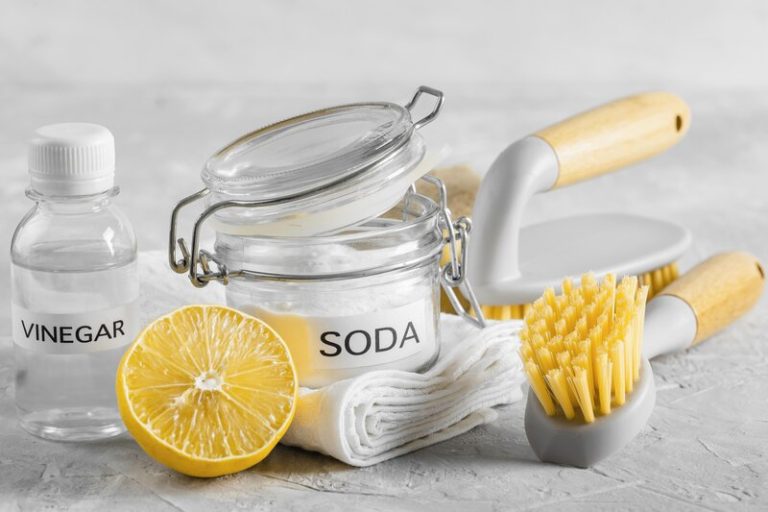Do you know what it takes to keep a commercial kitchen clean and safe? If you are not familiar with it, then this article about commercial kitchen cleaning guides is for you.
Basically, deep cleaning commercial kitchens cover a lot of ground, from health and safety regulations to recommended cleaning products. There’s a lot to consider when it comes to maintaining a sanitary environment.
In this comprehensive guide, we will explore the importance of a commercial cleaning kitchen, the consequences of not following proper regulations, the basic steps for cleaning a commercial kitchen, recommended cleaning products, best practices for maintenance, and the benefits of hiring a professional cleaning service.
Stay tuned to learn everything you need to know about keeping your commercial kitchen in top shape!
What is Commercial Kitchen Cleaning?
Commercial Kitchen Cleaning involves the thorough cleaning and sanitising of all surfaces, equipment, and utensils in a professional kitchen to maintain food hygiene standards and prevent foodborne illnesses such as E. coli contamination.
Professional kitchen cleaning requires the use of specialised cleaning products that effectively remove grease, grime, and bacteria. It is crucial to follow food safety regulations to ensure that the kitchen environment is safe for food preparation. Regular maintenance and deep cleaning of kitchen equipment such as ovens, fryers, and refrigerators are essential to prevent cross-contamination and bacterial growth. By adhering to strict cleanliness protocols, restaurants and food establishments can safeguard the health of their customers and maintain a positive reputation in the industry.
The Importance of Commercial Kitchen Cleaning
In this commercial kitchen cleaning guide, you should also know why this activity is important to do.
Commercial Kitchen Cleaning is crucial for food businesses to uphold food hygiene standards, prevent foodborne illnesses, and comply with regulations set by organisations like the Food Standards Agency.
Regular cleaning and sanitisation of kitchen equipment and surfaces are essential to eliminate harmful bacteria and cross-contamination risks. Failure to maintain cleanliness in a commercial kitchen can lead to serious consequences such as customer health risks, legal repercussions, and damage to the reputation of the establishment.
A dirty kitchen environment can attract pests like rodents and insects, further compromising food safety standards. Ensuring a clean and well-organised kitchen not only promotes a positive work environment but also enhances overall operational efficiency.
Health and Safety Regulations for Commercial Kitchen Cleaning
As part of a commercial kitchen cleaning guide, health and safety protocols are something that should not be overlooked.
Health and Safety Regulations for Commercial Kitchen Cleaning encompass guidelines set by authorities like the Food Standards Agency and specific standards such as TR19 regulations that dictate cleaning practices.
Ensuring compliance with these regulations is crucial to maintaining a safe and hygienic environment in kitchens where food preparation takes place. Adhering to these standards not only promotes cleanliness but also plays a vital role in preventing cross-contamination and foodborne illnesses. Regular inspections and audits are conducted by health inspectors to verify that establishments are following the prescribed cleaning protocols.
Consequences of Not Following Proper Cleaning Regulations
Not following proper cleaning regulations in a commercial kitchen can lead to severe consequences such as cross-contamination of food products, bacterial growth, and potential E. coli outbreaks.
For example, when surfaces are not sanitised regularly, harmful bacteria can thrive and spread to different food items, putting customers at risk of foodborne illnesses. In addition, neglecting to clean kitchen equipment properly can result in the build-up of grease and grime, creating a breeding ground for pathogens. This negligence not only endangers public health but also jeopardises the reputation and legal compliance of the establishment.
Step-by-Step Commercial Kitchen Cleaning Guide
Cleaning a commercial kitchen involves several fundamental steps, including preparing the kitchen, sanitising surfaces, disinfecting equipment, and maintaining cleanliness to prevent contamination.
One of the essential initial steps is to declutter and organise the workspace before diving into the cleaning process. This includes clearing off countertops, removing unnecessary items, and ensuring there is ample space to work efficiently.
Next, thoroughly sanitising surfaces with commercial-grade disinfectants is crucial to eliminate germs and bacteria.
For a detailed overview, here are the kitchen deep cleaning services that are usually provided
a. Preparing the Kitchen for Cleaning
Before initiating the cleaning process, it is essential to prepare the kitchen by removing food products, clearing surfaces, and ensuring all cooking and chilling equipment is accessible for thorough cleaning.
This preparatory stage sets the foundational groundwork for an efficient and effective cleaning routine. Decluttering the kitchen not only enhances safety by reducing potential hazards but also facilitates a more organised workspace for the cleaning process.
By organising workspaces, chefs and cleaning staff can navigate the kitchen seamlessly, ensuring no area is overlooked during the cleaning process. Setting up cleaning equipment beforehand saves time and streamlines the process, allowing for a methodical approach to tackle different surfaces and equipment.
b. Cleaning and Sanitizing Surfaces
The process of cleaning and sanitising surfaces in a commercial kitchen involves the removal of dirt, grease, and bacteria, particularly E. coli, to maintain a hygienic environment and prevent cross-contamination.
Regular cleaning is crucial in a kitchen to avoid the buildup of harmful pathogens like E. coli, which can lead to foodborne illnesses if ingested. Utilising proper sanitising techniques, such as using disinfectants and sanitisers approved for commercial kitchens, ensures that surfaces are thoroughly treated.
It’s imperative to follow a systematic approach, starting from the highest point and working downwards, cleaning countertops, cutting boards, utensils, and equipment with hot, soapy water before applying sanitisers. Paying extra attention to high-touch areas like doorknobs and handles is also essential to maintaining a safe kitchen environment.
c. Cleaning and Disinfecting Equipment
Cleaning and disinfecting equipment and utensils in a commercial kitchen is essential to prevent the spread of germs, maintain food safety, and comply with hygiene standards.
Proper cleaning and disinfecting routines help eliminate harmful bacteria and viruses that can contaminate food, putting both customers and staff at risk. By regularly following a detailed cleaning schedule, kitchen staff can ensure that all surfaces, tools, and equipment are free from any potential hazards.
Hygiene maintenance is not just crucial for meeting regulations but is also a fundamental aspect of running a successful and reputable food establishment.
Sanitation practices must be ingrained in the daily operations to uphold the quality and safety of the food served to patrons.
d. Cleaning and Sanitising Floors
Properly cleaning and sanitizing floors, as well as chopping boards, in a commercial kitchen is crucial to prevent contamination, maintain cleanliness, and ensure food safety compliance.
In a bustling commercial kitchen, where multiple hands handle various ingredients and tools daily, hygiene plays a pivotal role in safeguarding the health of customers and upholding the reputation of the establishment. Regularly sweeping, mopping, and sanitising the floors help eliminate potential hazards that can compromise the quality of the food prepared. Similarly, maintaining impeccably clean chopping boards prevents cross-contamination and ensures that each dish is prepared in a hygienic environment.
e. Cleaning and Disinfecting Restrooms
Cleaning and disinfecting toilets in a commercial kitchen environment is essential to prevent the spread of germs, maintain cleanliness standards, and uphold hygiene practices using appropriate disinfectants like bleach.
Along with using bleach, it’s crucial to ensure proper ventilation when applying disinfectants to avoid harmful fumes. Before disinfecting, the surfaces should be pre-cleaned to remove visible dirt and grime.
- Start by wearing protective equipment such as gloves and goggles before handling any cleaning agents.
- Use a mop or cloth soaked in the disinfectant solution to wipe down surfaces thoroughly, focusing on high-touch areas like doorknobs and tap handles.
After allowing the disinfectant to sit for the recommended time, rinse surfaces with clean water and dry them properly to complete the process.
Recommended Cleaning Products for Commercial Kitchens
When looking for a commercial kitchen cleaning guide, some of you might also want to know what product recommendations can support this task.
Basically, recommended cleaning products for commercial kitchens include degreasers to tackle grease buildup, disinfectants to eliminate germs, sanitisers for food surfaces, and speciality cleaners for specific equipment.
In a bustling commercial kitchen environment where cleanliness is paramount, the use of appropriate degreasers is essential to cut through tough grease residues on hobs, worktops, and extractor hoods.
Disinfectants play a crucial role in preventing the spread of harmful bacteria, viruses, and other pathogens, ensuring a safe and hygienic food preparation area for both customers and staff.
Sanitisers are specifically formulated to sanitise food-contact surfaces, such as chopping boards, preparation tables, and utensils, minimising the risk of cross-contamination.
Speciality cleaners cater to the diverse range of equipment present in commercial kitchens, such as cookers, grills, and fryers, providing targeted cleaning solutions for optimal performance and longevity.
a. Degreasers
Degreasers are essential for removing tough grease build-up in commercial kitchens, often requiring industrial-strength drain cleaners for thorough cleaning and maintenance.
- Industrial-strength degreasers are formulated to break down and remove these stubborn grease deposits effectively, ensuring a hygienic and safe kitchen environment.
- Regular use of degreasers can also prevent the build-up of grime and bacteria, promoting food safety and extending the lifespan of kitchen appliances.
b. Disinfectants
Disinfectants play a critical role in eliminating harmful germs and bacteria in a commercial kitchen, with options like bleach providing effective sanitation and hygiene maintenance.
- Disinfectants are designed to target specific pathogens, including E. coli and Salmonella, which can cause foodborne illnesses if not properly addressed.
Ensuring a safe and clean environment in the kitchen is paramount, especially considering the high risk of contamination from food preparation surfaces and equipment.
Regular use of disinfectants not only reduces the chance of cross-contamination but also safeguards the health of both customers and kitchen staff.
c. Sanitisers
Sanitizers are crucial for maintaining food surfaces’ cleanliness and meeting food hygiene standards in commercial kitchens, ensuring the prevention of contamination and cross-contamination.
By effectively killing bacteria, viruses, and other harmful pathogens, sanitisers help reduce the risks of foodborne illnesses and maintain a safe working environment for food handlers. The use of sanitisers not only safeguards the health of customers but also protects the reputation of the establishment. Regularly sanitising kitchen tools, equipment, and work surfaces is a fundamental practice that upholds food safety regulations and promotes good hygiene habits among staff. Incorporating sanitisers into daily cleaning routines is essential to prevent the spread of germs and ensure the quality of food products prepared in the kitchen.
d. Specialty Cleaners
Speciality cleaners are designed for specific kitchen equipment and surfaces in commercial kitchens, addressing unique cleaning needs and ensuring optimal cleanliness and maintenance.
These cleaners are formulated to effectively break down grease, grime, and stubborn residue that accumulate on surfaces like stainless steel, ovens, fryers, and grills.
In addition, they are tailored to be safe for use on food-contact surfaces, making them ideal for maintaining a hygienic environment in food preparation areas.
With specialised compositions, these cleaners efficiently remove carbon buildup on oven surfaces and eliminate tough stains, ensuring that kitchen equipment functions properly and remains in top condition.
Best Practices for Maintaining a Clean Commercial Kitchen
Maintaining a clean commercial kitchen involves adhering to strict cleaning schedules, following food hygiene standards, and ensuring every staff member is trained in proper sanitation practices.
Along with these core principles, it is crucial to designate specific cleaning tasks for different team members to avoid confusion and ensure all areas are thoroughly sanitized.
Regular monitoring and auditing of cleanliness protocols can help identify any gaps or areas for improvement, allowing for prompt corrective action.
Consistency is key in upholding hygiene standards, from daily surface cleaning to deep cleaning of equipment regularly.
Implementing clear signage and reminders can serve as useful visual cues for staff to maintain an organized and sanitized work environment.
How Often Should a Commercial Kitchen be Cleaned?
According to this commercial kitchen cleaning guide, you should also know how often this routine needs to be done.
In general, a commercial kitchen should be cleaned regularly, ideally daily, to maintain food safety standards and prevent the risk of foodborne illnesses, as recommended by industry guidelines and Food Safety News reports.
This regular cleaning routine is crucial to uphold hygiene levels in the kitchen environment and ensure the well-being of both customers and staff. The accumulation of grease, grime, and food residue poses a serious health hazard if left unattended, leading to cross-contamination and bacterial growth.
Implementing thorough cleaning practices daily is not only a recommendation but a necessity in the food service industry to comply with health regulations and maintain a positive reputation among patrons. It’s not just about aesthetics; it directly impacts the safety and quality of the food being prepared and served.
Benefits of Hiring a Professional Commercial Kitchen Cleaning Services
Engaging a professional commercial cleaning kitchen services offers benefits such as thorough sanitation, compliance with regulations, and peace of mind knowing that cleaning is handled by experts.
Professional kitchen cleaning services bring a level of expertise that is unmatched, as their staff are trained in the latest cleaning techniques and use specialised equipment to ensure every nook and cranny is spotless. Efficiency is another key advantage, with these professionals completing the task in a fraction of the time it would take an in-house team.
Outsourcing kitchen cleaning helps in maintaining high hygiene standards, crucial in the food industry to prevent contamination and ensure customer safety. These services also offer flexibility, allowing you to schedule cleanings at times that least disrupt your operations.
Thus, this complete commercial kitchen cleaning guide emphasizes the importance of regular and thorough cleaning to maintain food hygiene standards, ensuring a safe and healthy environment for your staff and customers.
Don’t overlook the significance of professional commercial cleaning services for your kitchen. Choose TEKA Cleaning to handle your commercial kitchen cleaning needs and maintain the highest standards of cleanliness and hygiene.
Book now or give us a call on 01233 751 544 to schedule our comprehensive cleaning solutions for your commercial kitchen. Experience the difference our expert cleaning team can make in upholding the highest standards of cleanliness and food safety in your kitchen.
Trust TEKA Cleaning for all your commercial cleaning needs and elevate your business today.
Read also:







